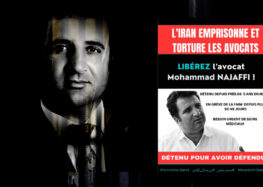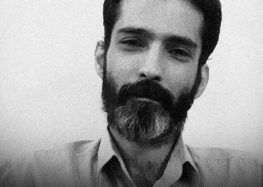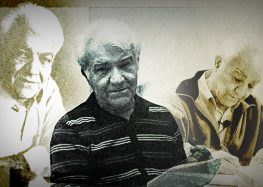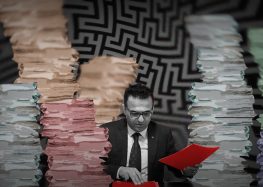Imprisoned Human Rights Lawyer Mohammad Najafi Slapped With Additional Charges
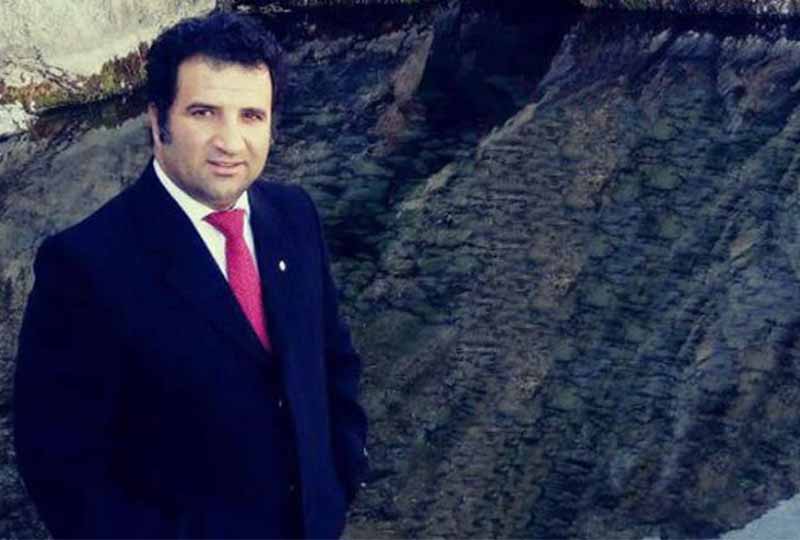
Imprisoned human rights lawyer Mohammad Najafi appeared at Branch 1 of Iran’s Revolutionary Court in Arak, Markazi Province, to face four additional charges that could keep him behind bars for many more years for attempting to peacefully seek justice for a now-deceased client.
“I asked the judge to make a distinction between political and security crimes in this case,” Najafi’s lawyer, Payam Derafshan, told the Center for Human Rights in Iran (CHRI) on December 2, 2018.
“My client has only expressed an opinion that may not have been palatable to many people,” he added.
“A security crime is when someone resorts to arms and threatens the country,” he added. “But political crimes are verbal expressions of a humanitarian concern that many may not agree with. The judge concurred.”
Najafi is currently imprisoned awaiting the verdict of the appeal he filed against the three-year prison sentence and 74 lashes he was sentenced to in October 2018 for informing media outlets that local prison authorities had tried to cover up the true cause of death of a young man, Vahid Heydari, who had been arrested during protests earlier this year.
For speaking to media outlets, Najafi was charged with and ultimately convicted of “disturbing the state” and “publishing falsehoods.”
Derafshan told CHRI that instead of being prosecuted, Najafi should be thanked for performing a civic duty by informing the public and prompting President Hassan Rouhani to form a fact-finding committee to investigate reports of suspicious deaths in Iran’s prisons.
“Instead of charging him with serious crimes, we should be grateful when someone expresses his opinion and spreads information about a suspicious death,” Derafshan said.
During his latest trial, Najafi faced the charges of “forming a group consisting of more than two members for the purpose of disturbing national security in the country,” “propaganda against the state in favor of anti-state organizations,” “insulting the supreme leader by chanting ‘Death to the dictator’” and “cooperation with enemy states through the transfer of news and information, including interviews with foreign media,” according to Derafshan.
Derafshan, who is contesting all the charges for Najafi, said, “cooperating with enemy states” is not a valid charge because the US and Iran are not officially at war.
“Mohammad Najafi only gave interviews to media outlets in the US and UK,” he added. “If you are suggesting that the US is an enemy state, then we must point out that Iran recently made an argument [to the International Court of Justice at the Hague] that the US is violating the Treaty of Amity [which emphasizes friendly relations] between the two countries.”
“If the government does not consider the US an enemy [according to this treaty], it makes no sense to bring this charge against an Iranian citizen,” added Derafshan. “And if you are pointing a finger at the UK, we have diplomatic relations with that country and they have an embassy here [in Iran].”
As for the charge of transferring news and information, Najafi’s lawyer noted that expressing personal opinions about the state of the country is not a crime.
“You have to show proof that Mr. Najafi is an enemy of the state,” Derafshan told CHRI. “But the fact is that his actions were limited to criticism.”
“During his detention and interrogation, he explained that when he chanted ‘Death to the dictator’ he was expressing his criticism against dictatorial behavior and dictators throughout history,” he added, meaning that Najafi was not specifically referring to the supreme leader.

